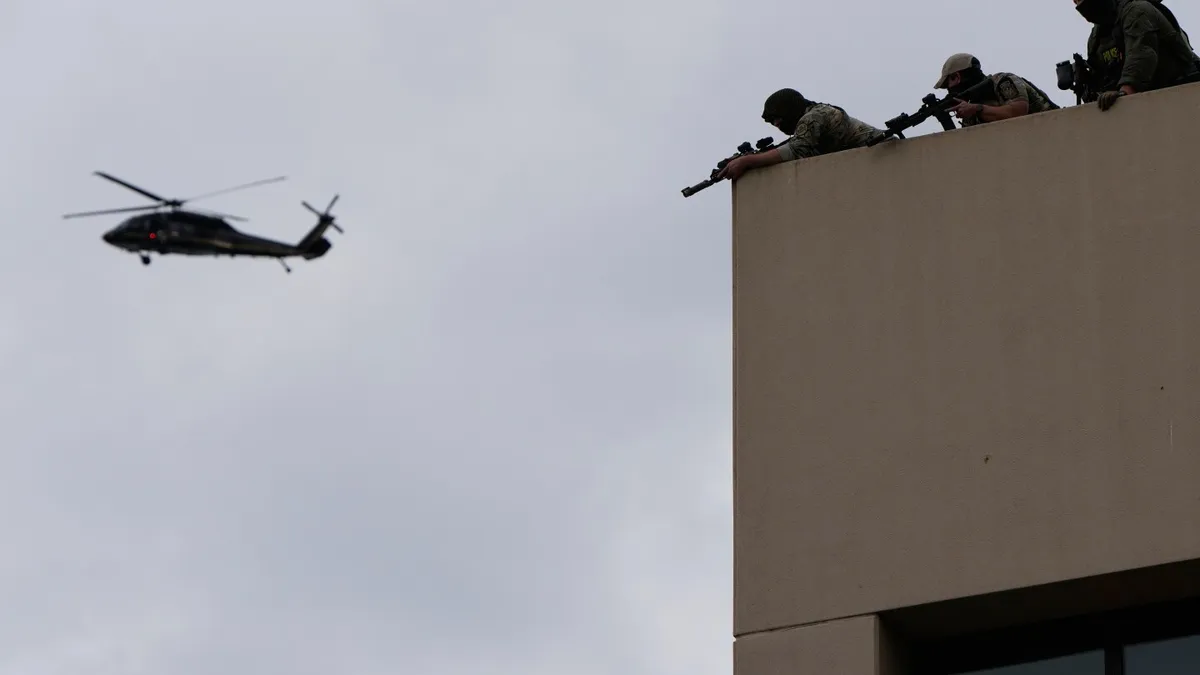
A federal judge in Oregon has issued a temporary block against President Donald Trump’s administration from deploying the National Guard in Portland. This ruling came as part of a lawsuit filed by state and city officials, highlighting the ongoing tensions surrounding federal intervention in local matters. U.S. District Judge Karin Immergut made the decision on Saturday, stating that the relatively minor protests in Portland did not warrant the use of federalized forces. She emphasized that allowing such deployment could infringe upon Oregon's state sovereignty.
In her ruling, Judge Immergut remarked, “This country has a longstanding and foundational tradition of resistance to government overreach, especially in the form of military intrusion into civil affairs.” She reinforced the notion that the United States operates under Constitutional law, not martial law. The lawsuit was initiated by state and city officials shortly after the Trump administration announced the federalization of 200 Oregon National Guard troops to safeguard federal buildings in the city.
Trump characterized Portland as “war-ravaged,” a statement that Oregon officials labeled as ludicrous. The U.S. Immigration and Customs Enforcement (ICE) facility has been the focal point of protests, which, in recent weeks, involved only a few dozen demonstrators. Judge Immergut noted that the protests were generally small and uneventful, stating that the plaintiffs successfully demonstrated the relatively peaceful nature of the demonstrations prior to the president's federalization order.
While acknowledging that the president typically enjoys “a great level of deference” when it comes to federalizing National Guard troops in circumstances where local law enforcement is unable to maintain order, Judge Immergut emphasized that this was not applicable in Portland. She pointed out that the president’s determination to deploy the National Guard was “simply untethered to the facts.”
Following the ruling, White House spokesperson Abigail Jackson defended the administration's actions, stating, “President Trump exercised his lawful authority to protect federal assets and personnel in Portland following violent riots and attacks on law enforcement — we expect to be vindicated by a higher court.” The administration has previously threatened to deploy troops in various U.S. cities, particularly those led by Democratic officials, including Los Angeles, Washington, Chicago, and Memphis.
In recent weeks, the protests in Portland have remained confined to a small area of the city, which spans approximately 145 square miles and is home to around 636,000 residents. After the announcement of the guard deployment on September 28, the protests saw a slight increase in activity. The Portland Police Bureau has stated that it does not engage in immigration enforcement and will only intervene if vandalism or criminal activities arise. However, during recent protests, police arrested two individuals on assault charges.
On the day of the ruling, approximately 400 people gathered to march towards the ICE facility, representing a diverse group of ages and backgrounds. Federal agents responded to the gathering with chemical crowd control measures, which included tear gas and less-lethal munitions, leading to at least six arrests.
This is not the first instance of federal intervention in Portland. In 2020, the Trump administration deployed federal officers during prolonged racial justice protests following the killing of George Floyd by Minneapolis police. Despite local and state leaders' objections, hundreds of agents were sent to protect federal property, which resulted in heightened tensions and violent clashes between demonstrators and federal officers. Reports indicated that many of these officers lacked the necessary training for their mission, leading to a settlement agreement this year between the government and the American Civil Liberties Union regarding excessive force claims.
The ongoing legal battles and public demonstrations in Portland reflect a broader national discourse on the balance between federal authority and local governance, as well as the implications of military presence in civilian affairs.